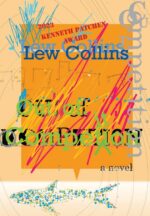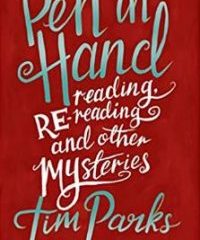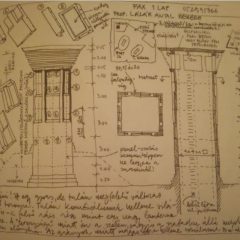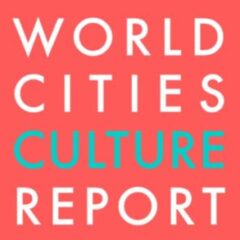Defining Art, Creating the Canon: Artistic Value in an Era of Doubt by Paul Crowther
The aesthetic experiences that we have as adults are a kind of echo of these formative infant experiences: an ongoing rediscovery of the world and its possibilities.
Tim Parks’ “Pen in Hand”
We should read: “with a sense of wonder and curiosity at the general and implacable human determination to fill endless space with dubious mental material when life is short and there are so many other things to be done”.
Book Bites: Paul Morland’s “The Human Tide”
Once the Malthusian link is broken and enough food and liberating technology is available, progress begins to feed through to the general population.
Book Bites: Mark O’Connell’s “To Be A Machine”
Some of futurists have taken Enlightenment reasoning and twisted it to a quasi-religious adherence to a technological future… as redemption.
Book Bites: Jing-Jing Lee’s “How We Disappeared”
Described by Xinran as a “brilliant, heart-breaking story”, this is indeed a well-crafted, harrowing tale that interweaves a modern narrative with the war years.
Book Bites: Peter Magyar’s Pen Zen Diaries
At its simplest, this book will teach you to draw and to learn from the process; with simple line studies and ink renderings. “Architects,” he says, “should aspire to reflect and invent the best of the present, and weigh its value in the future”.
Book Bites: Sennett’s ‘Building and Dwelling’
Anyone who thinks about the City and its relationship to people, should be interested in this book. It is complex in the same way that a city and its relationships to people is complex.
The World Cities Culture Report
The report recognises that revitalising and capitalising on a city’s cultural life plays out differently in vastly contrasting contexts.
Book Bites: Stoner by John Williams
Stoner has substance, gravity and it stays with you afterwards. What it reminds me of is the enchantment of the book and its suggestion that literature itself might be the best way of understanding life.
Book Review: After Europe by Ivan Krastev
Ivan Krastev is a respected, left-wing intellectual and professor at Sofia University. He has written several pithy books, mainly about democracy. His commentaries are insightful, with colourful details and images enlivening his academic prose.


















